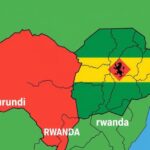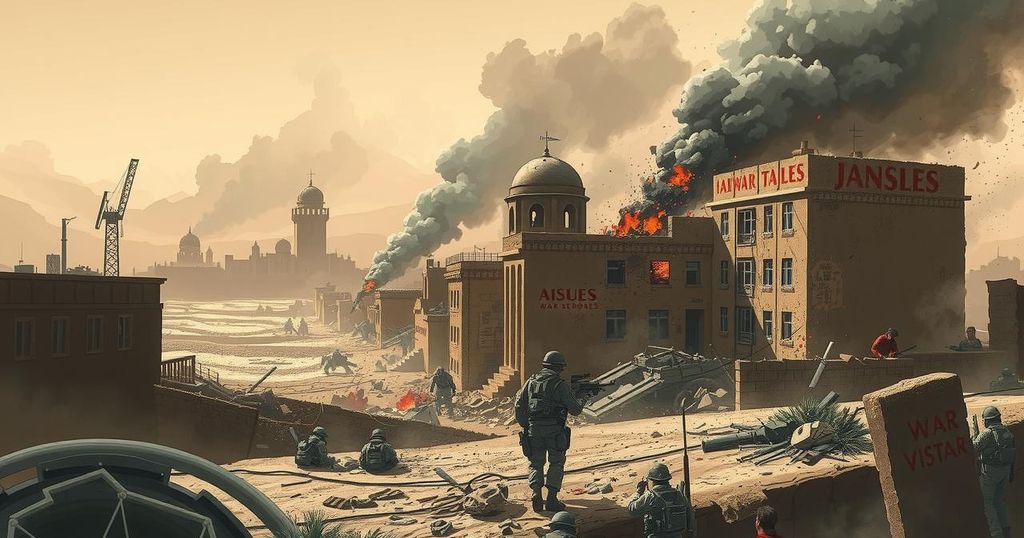Burundi President Accuses Rwanda of Planning to Incite Conflict
Burundi’s President Évariste Ndayishimiye has alleged that Rwanda is attempting to spark conflict by supporting rebel groups, likening the situation to the unrest in the DRC. Despite these claims, Rwanda has denied any involvement. The crisis is exacerbated by a worsening humanitarian situation as Burundi faces a significant influx of refugees fleeing violence in the DRC, with food assistance becoming increasingly critical.
The President of Burundi, Évariste Ndayishimiye, has accused Rwanda of planning to incite a conflict within Burundi, alleging governmental support for rebel groups aimed at destabilizing the nation. In an interview with the BBC, Ndayishimiye referenced what he termed as “credible intelligence” to support his claims, likening the situation to the ongoing crisis in the Democratic Republic of Congo (DRC) involving the M23 rebel group, which is believed to have the backing of Rwanda.
Ndayishimiye asserted that Rwanda intends to instigate instability and subsequently portray the conflict as an internal matter, stating, “They would say it’s an internal problem when it’s Rwanda (who is) the problem.” He emphasized that the Burundian people are resolute in their defense, noting, “Burundians will not accept to be killed as Congolese are being killed. Burundian people are fighters.”
While Ndayishimiye accused Rwanda of involvement in a failed coup attempt during 2015, he expressed a desire to avoid war, stating, “We don’t have any plans to attack Rwanda. We want to resolve that problem by dialogue.” He called for mutual respect regarding peace agreements and emphasized a preference for dialogue over conflict, asserting, “We will not sit idle if we are attacked.”
Despite Ndayishimiye’s serious allegations, he has not presented tangible evidence to back his claims. The Rwandan government has dismissed these accusations as unexpected and has reiterated that there are no plans to incite conflict in Burundi, insisting on cooperation for border security.
As tensions simmer, Burundi is experiencing its largest refugee influx in decades due to conflict in the DRC. The UN World Food Program (WFP) reported a doubling in the number of refugees requiring food assistance, which now totals 120,000. The ongoing hostilities have heightened humanitarian crises, prompting warnings from the WFP about potentially exhausting its resources for operations in Burundi by June 2023, leading to a suspension of food assistance.
In summary, President Évariste Ndayishimiye of Burundi has accused Rwanda of attempting to provoke unrest in his country through support of rebel factions, while Rwanda has categorically denied these claims. Ndayishimiye advocates for dialogue to resolve tensions yet has asserted the resolve of Burundians against aggression. The humanitarian impact of the ongoing conflict and refugee crisis in the region underscores the urgency for stability and cooperation among neighboring nations.
Original Source: www.euronews.com








Post Comment